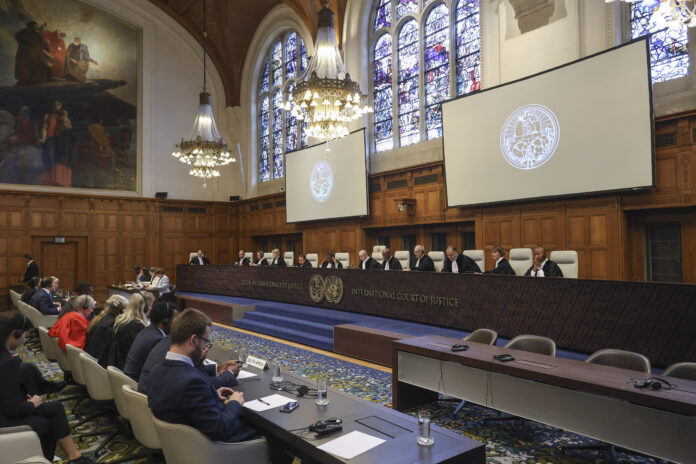
The International Court of Justice (ICJ) has ordered Israel to immediately halt its military offensive in Rafah, southern Gaza, where it sent forces on May 6.
“Israel must immediately hold its military offensive or any other action in the Rafah governorate which may inflict on the Palestinian group in Gaza, conditions of life that could bring about its physical destruction in whole or in part,” said Judge Nawaf Salam, president of the ICJ, reading the order on additional provisional measures requested by South Africa in the ongoing genocide case against Israel.
The ruling said Israel has not “sufficiently addressed and dispelled” concerns raised by its military operation in Rafah.
The ICJ also called on Israel to maintain the Rafah border crossing open for unhindered access of basic services and humanitarian assistance into Gaza.
It ordered Tel Aviv to submit a report on the measures taken on the latest order within a month.
South Africa’s lawyers had asked the ICJ in the Hague last week to impose emergency measures, saying Israel’s attacks on Rafah must be stopped to ensure the survival of the Palestinian people.
Israel launched its assault on the southern city of Rafah this month, forcing hundreds of thousands of Palestinians to flee a city that had become a refuge to about half of the population’s 2.3 million people.
Subscribe to our newsletter and stay updated on the latest news and updates from around the Muslim world!
Rafah has also been the main route in for aid, and international organisations say the Israeli operation has cut off the enclave and raised the risk of famine.
Shortly after the ruling, Israel’s finance minister Bezalel Smotrich said on the social media platform X that “the State of Israel is at war for its existence.”
“Those who demand that the State of Israel stop the war, demand that it decree itself to cease to exist. We will not agree to that,” he said.
“We continue to fight for ourselves and for the entire free world. History will judge who today stood by the Nazis of Hamas and ISIS,” he added.
The ICJ, also known as the World Court, is the highest UN body for hearing disputes between states. Its rulings are final and binding but have been ignored in the past. The court has no enforcement powers.






















